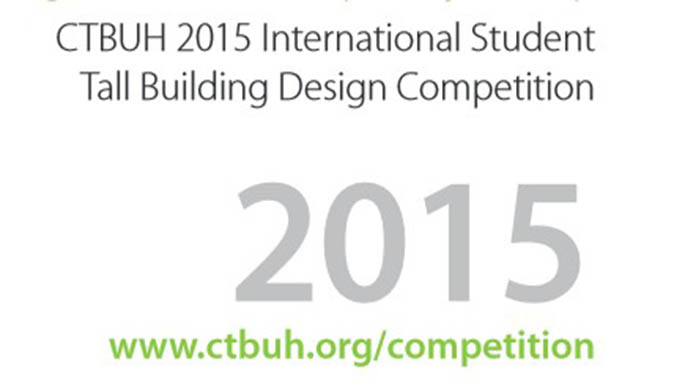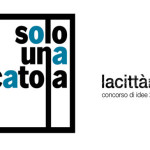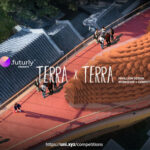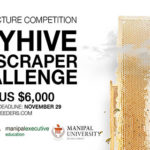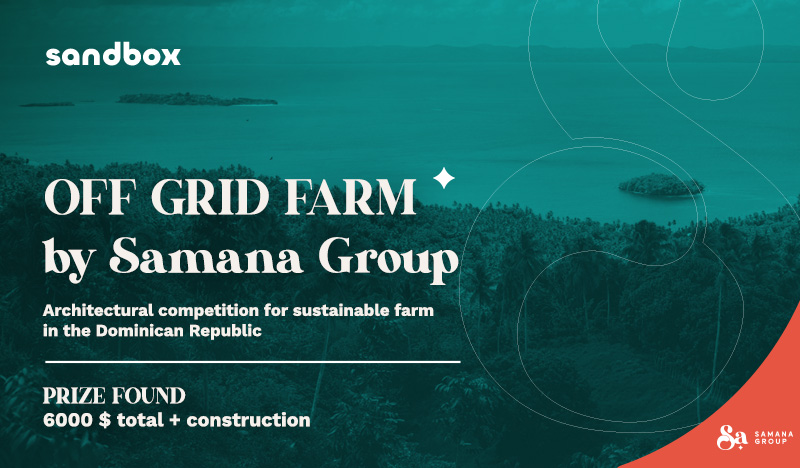Submission: August 10, 2015
Registration: August 03, 2015
Language: English
Location: Concept
Prizes: 1st Prize $6,000, 2nd Prize $5,000, 3rd Prize $4,000, 4th Prize $3,000, 5th Prize $3,000
Type: Students & Young Architects
The Council on Tall Buildings and Urban Habitat (CTBUH) is pleased to announce its 4th International Student Tall Building Design Competition. The goal of the competition is to shed new light on the meaning and value of tall buildings in modern society.
As worldwide populations continue to urbanize and grow, the role of the tall building in the twenty-first century has moved beyond simply addressing spatial and economic efficiencies. The permanence of these structures necessitates careful forethought into how they will interface with the surrounding urban context, the natural environment, their inhabitants, and the world as a whole. Although they are statically embedded in our cities, skyscrapers must employ a dynamic spatial and functional dialogue, allowing them to remain active and relevant for not just decades, but centuries.
The interplay with local culture is critical, as it not only adheres a project appropriately within a city, but communicates the values and imperatives of a place to a global audience. This communication can be meaningfully imparted in many ways – from building form, design inspiration, and motifs; to employed materials, technologies, and urban arrangement. Given the rise of international participation in the tall building world, we find ourselves at defining moment – where small decisions made today on a local scale can enable sweeping change worldwide.
Participants are free to site their projects anywhere in the world. But this is not to undervalue the importance of site – participants should carefully consider their site (which must be a “real” site, in an existing urban location) as the site context should inherently have significant influence over the project’s design. Participants are also free to determine the size, height, function, accommodation and responsibilities of the building. The intention is these freedoms on site and program will maximize the diversity and creativity of the responses. It is also intended to allow students from specific high-rise educational studies around the world during the 2014–15 academic year to submit their projects for consideration.
Participants should engage with the exploration and resolution of the synergistic relationship of placing a tall building in a unique existing urban setting; how that tall building can be inspired by the cultural, physical, and environmental aspects of its site; and how the program of the building is influenced by the micro and macro site/urban conditions; and how the building responds to global issues. Proposals should show evidence of a clear understanding of how considerations of structure, environment, servicing, etc. are as vital to the success of a tall building as the form, materials, aesthetics, etc.
Participants need to also consider the CTBUH Criteria for defining tall buildings, such that “at least 50% of its height is occupied by usable floor area,” (i.e., proposals should be functional “buildings” not simply observation, communication, or other towers).
Some of the multi-layered elements that participants should take into consideration may include (in no particular hierarchy):
- local climate
- urban grain
- neighboring buildings
- city requirements
- community requirements
- social sustainability
- environmental sustainability
■ efficiency of materials, space, and usage
■ aesthetics
■ proportions
■ local, social, and cultural conditions ■ materiality
■ new technologies
■ structure
■ innovative program/functionality ■ adaptability
■ transit/mobility
■ infrastructure
■ etc.
Participation Requirements
- The competition is open to all students who are registered at a University level. For recently graduated students: you must have been a registered student at least during the Fall 2014 term, i.e., August–December 2014.
- The official language of the competition is English.
- Participation in this competition is anonymous. You will be issued a registration number which will serve as the only meansof identification during the entire judging process.
- Contact between participants and members of the jury is prohibited.
- Five “Finalists” will be selected to present their schemes at the CTBUH 2015 New York Conference. Participation in the Conference and presentation to the jury are required as a condition of being awarded “Finalist” status and receiving the award (a travel stipend is provided for one representative per team, see below). Finalist teams that do not attend will be ineligible for prizes.
- Copyright and intellectual rights of the submissions remain with the original authors. Successful participants in the CTBUH Student Design Competition agree to allow the CTBUH to display their work in printed format at the CTBUH New York Conference Oct. 26-30th; display images and a text description of their work on the CTBUH website at http://academic. ctbuh.org; and use an image of their work in promotional material for future CTBUH competitions.Prizes
PRIZES
- First Place: US$6,000
US$3,000 cash + stipend to attend 2015 New York Conference (up to US$3,000 value*)
- Second Place: US$5,000
US$2,000 cash + stipend to attend 2015 New York Conference (up to US$3,000 value*)
- Third Place: US$4,000
US$1,000 cash + stipend to attend 2015 New York Conference (up to US$3,000 value*)
- Fourth Place: US$3,000
Stipend to attend 2015 New York Conference (up to US$3,000 value*)
- Fifth Place: US$3,000
Stipend to attend 2015 New York Conference (up to US$3,000 value*)
Honorable Mentions
A select number of entries will be recognized as Honorable Mentions and awarded with a certificate separate to the Conference.
Exhibition: A poster exhibition of the five “Finalists” and up to 20 selected “Semi-finalist” entries will be exhibited during the CTBUH 2015 New York Conference.
*A stipend will be provided to send one representative from each of the five “Finalist” teams to the 2015 New York Conference to present their project to the jury in order to determine the 1st through 5th place awards. The stipend includes complimentary Conference registration (value US$1,000) + travel/accommodation costs (up to US$2,000).
KEY DATES
- Wednesday, April 1st – Competition formally launched
- Monday, August 3rd – Registration deadline
- Monday, August 10th – Submission deadline
- Monday, August 24th – Short-listed “Semi-finalists” announced
- Wednesday, September 9th – Top-five “Finalists” announced
- Monday–Friday, October 26–30th – CTBUH New York Conference, Top-five Finalists will present to the jury in New York. Winners will be announced during the conference.
www.ctbuh.org/competition
REGISTRATION
- All university students are invited to participate in the design competition. Multidisciplinary teams are strongly encouraged.
- Teams can be made up of one individual, up to a maximum of 5 individuals.
- Only one single project can be submitted by any one individual/team.
- Individuals cannot participate in more than one team.
- Participants must register online at www.ctbuh.org/competition by August 3, 2015.
- All team members must submit proof of student status when they register. A scanned copy of a student ID or other form of verification for each member of the team must be uploaded to the registration site in order to successfully complete the registration.
- After your registration and student status has been approved, the CTBUH will issue you a unique registration number which will be necessary for the final submission.
- There are no registration fees. Participation in the CTBUH Competition is free. Submission RequirementsSubmissions will be digital only, no hard copies will be required or accepted. Participants must submit their project no later than August 10, 2015. Access to upload your submission will be provided to you by email after you have successfully completed the registration process.Project submissions are limited to the following two files (both files are required):
One A1 board
- This primarily visual presentation of your project should include the following: the name/title of your project, the project concept, diagrams, plans, sections, and perspectives. However, it is up to each individual team to determine what information is needed to communicate their project most effectively to the judges.
- The board must be ISO A1 (841mm x 594mm) in size and oriented to the LANDSCAPE (i.e., horizontal) format.
- The board must be saved as a PDF file of high visual resolution, however the file size should not exceed 20meg.
- Entry must include your unique registration number in the upper right corner of the board. There should NOT be any personal names, affiliations, or any other forms of identification on the board.
- The file name must include your three-digit registration number and conform to the following naming convention:CTBUH2015_XXX.pdf
One DOC file written description (A4 one-page)
- This one-page written description is your opportunity to further describe your project’s concept, design, motivations, etc.
- Please include the name/title of your project at the top of the document.
- Text should be a maximum of 500 words, and is not to exceed one page.
- There should NOT be any personal names, affiliations or any other forms of identification in the text.
- The file name must include your three-digit registration number and conform to the following naming convention:CTBUH2015_XXX_Description.docOnly these two files (one .pdf and one .doc) will be accepted. No additional files will be accepted. Supplemental files (.ppt, .mov, etc.) or files that do not conform to the above listed specifications will be discarded and not reviewed by the jury.The top five projects selected as “Finalists” will elect one team member to present the project during the CTBUH New York Conference. This will include a 10 minute oral presentation (supported by a powerpoint presentation), followed by a 10 minute Question and Answer session with the jury. Attendance at the Conference presentation is mandatory. “Finalist” teams that fail to send representation to the Conference will be ineligible for the prizes.
JURY
The competition consists of two juries. The first-round jury will narrow the submissions down to 20 Semi-Finalists. The second- round jury will then select the five Finalists from the Semi-Finalists. The members of the second-round jury will consist of prominent professionals involved in the 2015 New York Conference, creating an international, multi-disciplinary group of tall building experts. The final jury selection announcement will be made closer to the start of the New York Conference.
JUDGING CRITERIA
To assist with the judging process, a series of judging criteria is defined in four categories as outlined below. Participants are strongly encouraged to keep these criteria in mind throughout the design process.
- Creative Approach (25 percent):
- The design response is innovative and inspirational.
- The design response shows originality and creative thinking in terms of high-rise design and the future evolution of the skyscraper.
- The building program is creative, yet clear and justified.
- Response to Site (25 percent):
- The design responds to the physical/cultural aspects of its site, such that the design is unique to its location, and not ageneric response to a tall building capable of being reproduced regardless of its location.
- The design responds to the environmental aspects of its site.
- Sustainability (25 percent):
- The design considers the building’s environmental impact and energy usage.
- The design considers efficiency throughout (core, shell, space, usage, etc.).
- The design considers social sustainability, occupant lifestyle, and well-being.
-
Functionality (25 percent):
- Planning and building organization is clear and appropriate.
-
There is a clear structural, technical, and constructional rationale.
Judges will also consider the CTBUH Criteria defining a tall building as “at least 50% of its height being occupied by usable floor area,” i.e., proposals should be functional “buildings” not simply observation, communication, or other towers. Proposals that do not meet this minimum requirement will be disqualified by the jury.

